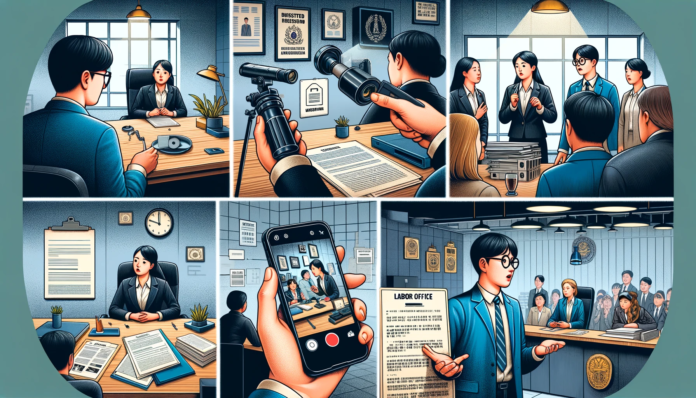When facing unfair treatment in the workplace, TEFL teachers in South Korea may find it necessary to record conversations as evidence. It is important to understand the legality and best practices surrounding this issue.
In South Korea, it is legal to secretly record conversations in which you are a participant, such as discussions with your boss or team leader. The Protection of Communications Secrets Act, which prohibits recording or listening to other people’s conversations without their knowledge, does not apply when you are directly involved in the conversation.
However, it is crucial to use these recordings appropriately. Uploading them to social media or sharing them in group chats to disparage your employer could lead to charges of defamation under criminal law or civil damages claims, as it may infringe on their constitutionally recognized right to privacy. Submitting these recordings as evidence to the Labor Office or Labor Commission, on the other hand, is generally not problematic.
There are three main situations in which recording conversations can be particularly helpful: unfair dismissal, unpaid wages, and workplace harassment. If you suddenly receive a dismissal notice, recording any subsequent meetings can help prove forced resignation or reveal the company’s true reasons for dismissal. In wage dispute cases, recordings can establish working hours, break times, and other relevant details, especially if the written contract differs from the actual conditions. Asking questions during the recording can prompt admissions from management.
In cases of workplace harassment, recordings are essential as most incidents occur verbally. While explicit verbal abuse can be easily recognized as harassment, more ambiguous situations, such as being repeatedly pressured to drink alcohol at company dinners, may require clear expressions of refusal and continued recording of persistent coercion to build a stronger case.
TEFL teachers in South Korea should be aware of their right to record conversations in the workplace when facing unfair treatment, as long as the recordings are used solely as evidence for the Labor Office or Labor Commission. By doing so, they can better protect themselves against unfair dismissal, wage disputes, and workplace harassment.





